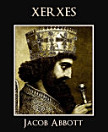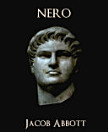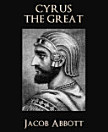The History of Pyrrhus
জুন ২০১৯ · BookRix
ইবুক
237
পৃষ্ঠা
family_home
যোগ্য
info
reportমূল্যাংকন আৰু পৰ্যালোচনা সত্যাপন কৰা হোৱা নাই অধিক জানক
এই ইবুকখনৰ বিষয়ে
Pyrrhus was a Greek general and statesman of the Hellenistic era. He was king of the Greek tribe of Molossians, of the royal Aeacid house (from c. 297 BC), and later he became king of Epirus and Macedon. He was one of the strongest opponents of early Rome. Some of his battles, though successful, cost him heavy losses, from which the term Pyrrhic victory was coined.
Pyrrhus and his campaign in Italy was effectively the only chance for Greece to check the advance of Rome towards domination of the Mediterranean world. Rather than banding together, the various Hellenistic powers continued to fight among themselves, sapping the financial and military strength of Greece and to a lesser extent, Macedon and the greater Hellenistic world. By 197 BC, Macedonia and many southern Greek city-states became Roman client states; in 188 BC, the Seleucid Empire was forced to cede most of Asia Minor to Rome's ally Pergamon (Pergamum). Rome inherited that state, and most of Asia Minor in 133 BC. Total Roman domination over Greece proper was marked by the destruction of Corinth in 146 BC; Greece would then form an integral part of the Roman world leading into the Byzantine period.
Pyrrhus and his campaign in Italy was effectively the only chance for Greece to check the advance of Rome towards domination of the Mediterranean world. Rather than banding together, the various Hellenistic powers continued to fight among themselves, sapping the financial and military strength of Greece and to a lesser extent, Macedon and the greater Hellenistic world. By 197 BC, Macedonia and many southern Greek city-states became Roman client states; in 188 BC, the Seleucid Empire was forced to cede most of Asia Minor to Rome's ally Pergamon (Pergamum). Rome inherited that state, and most of Asia Minor in 133 BC. Total Roman domination over Greece proper was marked by the destruction of Corinth in 146 BC; Greece would then form an integral part of the Roman world leading into the Byzantine period.
এই ইবুকখনক মূল্যাংকন কৰক
আমাক আপোনাৰ মতামত জনাওক।
পঢ়াৰ নির্দেশাৱলী
স্মাৰ্টফ’ন আৰু টেবলেট
Android আৰু iPad/iPhoneৰ বাবে Google Play Books এপটো ইনষ্টল কৰক। ই স্বয়ংক্রিয়ভাৱে আপোনাৰ একাউণ্টৰ সৈতে ছিংক হয় আৰু আপুনি য'তে নাথাকক ত'তেই কোনো অডিঅ'বুক অনলাইন বা অফলাইনত শুনিবলৈ সুবিধা দিয়ে।
লেপটপ আৰু কম্পিউটাৰ
আপুনি কম্পিউটাৰৰ ৱেব ব্রাউজাৰ ব্যৱহাৰ কৰি Google Playত কিনা অডিঅ'বুকসমূহ শুনিব পাৰে।
ই-ৰীডাৰ আৰু অন্য ডিভাইচ
Kobo eReadersৰ দৰে ই-চিয়াঁহীৰ ডিভাইচসমূহত পঢ়িবলৈ, আপুনি এটা ফাইল ডাউনল’ড কৰি সেইটো আপোনাৰ ডিভাইচলৈ স্থানান্তৰণ কৰিব লাগিব। সমৰ্থিত ই-ৰিডাৰলৈ ফাইলটো কেনেকৈ স্থানান্তৰ কৰিব জানিবলৈ সহায় কেন্দ্ৰত থকা সবিশেষ নিৰ্দেশাৱলী চাওক।






